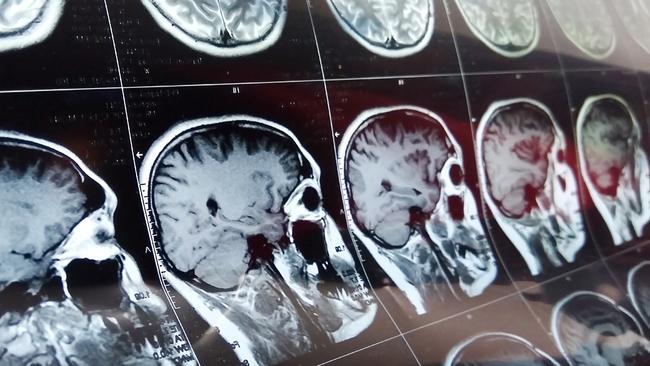Why COVID-19 is causing young people to suffer strokes
Young healthy people in their 30s and 40s are suffering deadly strokes after mild cases of COVID-19. And the shocking trend is emerging as just one of many life-threatening complications.
Coronavirus
Don't miss out on the headlines from Coronavirus. Followed categories will be added to My News.
Young healthy people in their 30s and 40s are suffering deadly strokes after mild cases of COVID-19 and it’s emerging as one of many life-threatening complications of the virus.
The main risk was thought to be lung problems but coronavirus is now also being shown to affect major organs including the kidneys, the liver and the brain.
Doctors in the US have reported a small number of COVID-19 patients developed small and large blood clots and in some cases these were not able to be controlled by anti-clotting therapies.
Dr. Thomas Oxley who works as a neurosurgeon at Mount Sinai Health System in New York has revealed a sevenfold increase in sudden stroke in young people in recent weeks.
The patients had mild symptoms of COVID-19 infection or had the virus but showed no symptoms at all — and at least one patient died.
There have been similar reports of blood clots in patients in China and Europe.
Professor Christopher Levi from John Hunter and Liverpool hospitals said clotting was a recognised feature of the body’s response to many infections but as yet there had been no reports of it in COVID-19 patients in Australia.
The weird thing about the stroke connection with COVID-19 in the US was that it was happening in younger people with mild cases of the virus, Professor Levi said.
“In some cases they are presenting with strokes and then tested positive for COVID,” he said.
Treating these clots was complicated because the clotting process caused by the body’s reaction to the virus could be so active it overwhelmed any drug therapy like warfarin and other blood thinners, he said.
And at the same time as the body was producing more clots there was simultaneously a risk of bleeding that could be made worse by using blood thinning treatments.
“When you don’t have a treatment for the infection there is nothing you can do except retrieve the clots or give clot busting drugs,” he said.
Dr Bruce Campbell the clinical chair of the Stroke Foundation said there had been no cases of COVID-19 clotting or strokes in Australia but that could be because there had only been a small number of virus cases.
The bigger problem in Australia is that people without COVID-19 who have a stroke are not coming to hospital because they fear catching COVID-19 and they are experiencing far worse outcomes as a result, he said.

Royal Prince Alfred Hospital neurologist Dr Timothy Ang said he saw a stroke patient yesterday who waited 10 days before presenting.
“Some of these people can’t speak or they are paralysed down one side and they tell us they didn’t come in sooner because they were worried about catching the virus,” Dr Ang said.
If you have a stroke it is vital to get treatment as soon as possible and clot busting drugs must be given within the first four hours to be effective, surgery to remove large clots ideally should be done within the first 24 hours, Dr Ang said.
One of the government’s key health advisers Professor Michael Kidd confirmed there had been reduction in hospitalisations for people with heart attacks and strokes over the last four to six weeks.
“Given that we have managed to flatten the curve in Australia and we don’t have our hospitals being overwhelmed with cases of people seriously unwell with COVID-19, this is probably the safest time it’s ever been for Australians to actually be going to hospitals, to be going to their general practices to be reaching out and getting their healthcare,” he told an Australian Academy of Science podcast.
The three key signs of a stroke are facial droop, arm weakness, speech disturbance and the faster an ambulance is called the greater the chance a person has of recovering.
Stroke is just one of the deadly complications of COVID-19.
Earlier this month Chinese researchers reported in the Journal of the American Medical Association that among 214 patients with the virus neurological symptoms were seen in 36.4 per cent and were more common in patients with severe infection (45.5 per cent).
Between 14 and 30 per cent of intensive-care patients in New York and Wuhan, China reportedly lost kidney function and required dialysis.
